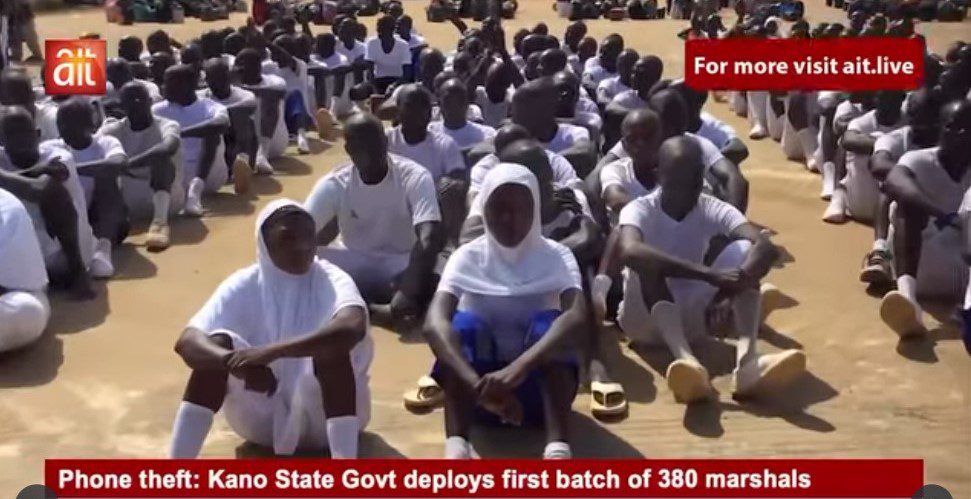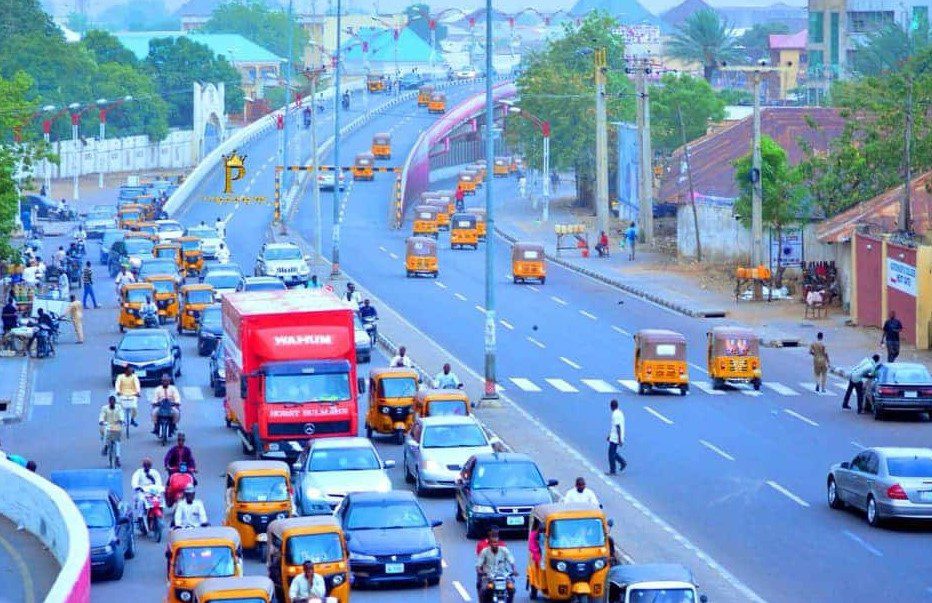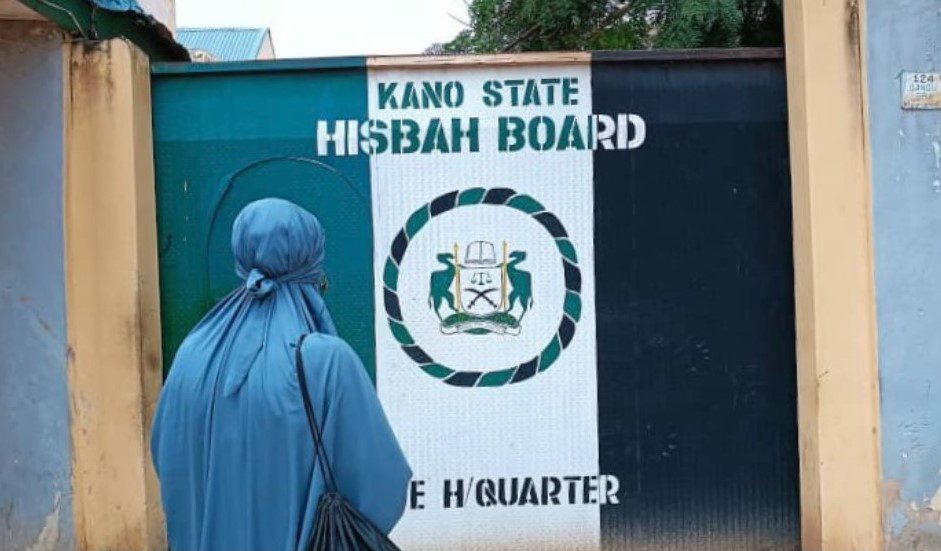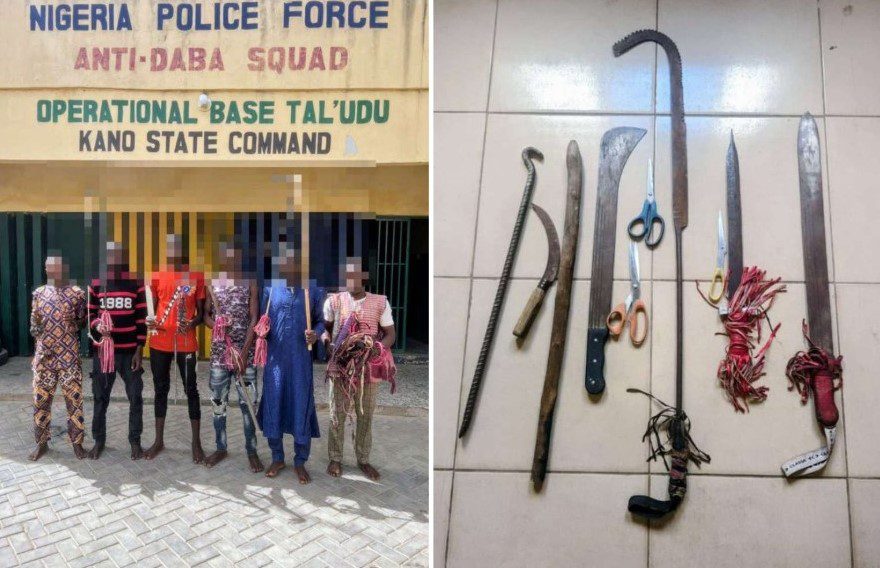







































Kano State’s 380 marshals against phone theft is a misplaced priority
 X
X
 CAPT
CAPT
 SECURITY
SECURITY
 X
X
 FORCE
FORCE
Amidst the prevalence of phone snatching and heightened insecurity across Kano State, the government has deployed 380 security marshals. As the most populous state in Nigeria with an estimated 16.3 million, the activities raised concerns over the safety of lives and property.
In some cases, there were reports of loss of life. Attackers use violence and escape on motorcycles. Before they can be tracked, the stolen phones are immediately disconnected and recycled.
Among the numerous cases is the experience of Abdullahi Umar Hafizi, a 300-level Sociology student at Bayero University, Kano, who was stabbed to death in Dorayi Karama by suspected phone snatchers.
There have also been reported cases across the state, with areas like Sheka, Rijiyar Lemo, Medile, Yakasai, Zango, Zage, Kofar Mata, and Kurna named as danger zones.
For the Kano State Government, this is a burden that must be solved with internal resources and measures. Unarguably, it’s an issue that needs technical input and intelligence personnel who possess the necessary tools to fight this crime.

However, Kano State has explored no other option than using unharmed youths.
“These marshals have been trained specifically to curb the disturbing trend of phone snatching in our dear state. They will complement the work of the police and other security agencies,” a senior government spokesperson said
However, the state’s high rate of unemployment, drug abuse, and organised crime has been factored as a key contributor to the prevalence of the crime. Yet, the state government has not made any visible move to address these.
The Commandant of Kano State’s Corporate Security Institute, Captain Mohammed Bello, explained that the 380 anti-phone snatching marshals underwent two weeks of training. This includes fitness, combat, surveillance techniques, identification of illicit drug users and modus operandi of arrest.
Also Read: Popular Kano TikToker Murja Kunya sentenced to 6 months imprisonment for alleged naira abuse.
For some, the scheme solves two major issues for the Kano State Government: youth unemployment and crime. But this comes at the risk of asking a boy to play the role of a father.
Another misplaced priority
On the contrary, experts believe that training young people for 2 weeks, without a requisite security background, has the potential to create more loopholes and cause additional problems rather than being a solution.
Two weeks of training is hardly enough preparation. The Police force and other internal security agencies undergo weeks of intense training, and still seem ill-equipped to stem the increasing spate of attacks.

Phone snatchers are typically tough and smart. Having little to lose, they often inflict indelible physical harm. Using inexperienced agents to fight these dangerous elements is not only misplaced but also dangerous.
The government announced that the Marshalls will be aided by the State Police Force and the religious civil enforcement group, Hisbah. Aside from upholding the Shari’a law, Hisbah has complemented the conventional police in various functions such as crime prevention, environmental sanitation, and reconciling civil disputes.
As an established group, the Hisbah could have been solely deployed for this task. The same way South Western states are using ‘Amotekun’ to fight crimes and potential banditry within s the region.

Dangers of using youths for anti-phone snatching
Importantly, the Kano State Government must understand the dangers of using youths to fight phone snatching and the aftermath of using inexperienced individuals to fight a ruthless criminal activity.
Like every other city in Nigeria, Kano State has become unsafe. Some experts have attributed the rising insecurity to post-COVID-19 realities, an increased proliferation of unlawful arms and increased use of hard drugs.
The picture reveals a challenge beyond ordinary phone snatching; it’s a broader case of increased crime. And this is more than using marshals; it’s the duty of well-trained and experienced security agencies.
In the midst of these, security agencies in Kano State have promised tighter patrols, more checkpoints, and stricter enforcement. Spokesperson of the Nigeria Security and Civil Defence Corps, Ibrahim Idris Abdullahi, pledged a zero-tolerance stance, warning that “offenders will no longer benefit from out-of-court settlements.”
Afterwards, the State Police Command intensified Operation Kukan Kura, leading to 200 arrests in June/July and the recovery of machetes, guns, and knives. On the other hand, the state government recently deployed 1,050 security operatives to 52 identified hotspots.

Hence, adding the marshals instead of reinforcing existing security personnel is may lead to needless chaos.
Reactions on X show that citizens are concerned about the operations and potential of the marshals.
A user, @Kingman4real, said sarcastically, “Omo. Na these guys go later turn the phone snatchers. Their faces no good.”
Another X user, @KnawtieGbedu, said, “Unless there’s a different motive for the establishment of these ‘marshals’. This is a total buffoonery and ridicule to our consciousness as the Nigerian people. A national pro max and global disappointment.”
Also Read: Protest: Bosun Tijani laments as hoodlums burn, loot 3MTT Digital Innovation Centre Kano.

